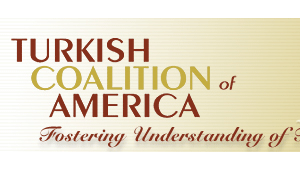Major International Court Finds the Ottoman Armenian Controversy Not Settled History
 On December 17, the European Court of Human Rights (ECHR) reversed the criminal conviction by a Swiss court of Dogu Percinek, a Turkish politician who publicly challenged that Armenians were subject to genocide in the final years of the Ottoman Empire nearly 100 years ago. The ECHR is an international court whose decisions are binding in 47 countries, including all of the European Union and every NATO member state except the U.S. and Iceland. Some 800 million people are subject to its jurisdiction. It has rendered judgment in more than 10,000 cases since its founding in 1959.
On December 17, the European Court of Human Rights (ECHR) reversed the criminal conviction by a Swiss court of Dogu Percinek, a Turkish politician who publicly challenged that Armenians were subject to genocide in the final years of the Ottoman Empire nearly 100 years ago. The ECHR is an international court whose decisions are binding in 47 countries, including all of the European Union and every NATO member state except the U.S. and Iceland. Some 800 million people are subject to its jurisdiction. It has rendered judgment in more than 10,000 cases since its founding in 1959. Perincek had claimed at various academic conferences in Switzerland that the use of the genocide label to describe the fate of the Ottoman Armenians during World War I was incorrect. A criminal complaint was then filed against him by an ethnic advocacy group called "Switzerland-Armenia" in July 2005. In March 2007, a local Swiss court found Perincek guilty of "racial discrimination" under the Swiss Criminal Code. Perincek's subsequent appeals were denied, which allowed him finally to bring his case to the ECHR. Perincek v. Switzerland (application no. 27510/08, filed June 10, 2008).
The essential ground for Perincek's conviction by the Swiss courts was the supposed existence of a general consensus, particularly within academic circles, concerning the characterization of the Armenian case as one of genocide. However, even the Swiss Federal Court itself admitted that there was no unanimity in the academic community concerning the matter. The ECHR's analysis demonstrated exactly the same. The ECHR further noted that the notion of 'genocide' was a precisely defined legal concept and was, moreover, not easy to substantiate.
In conjunction with this, the ECHR also clearly distinguished the Armenian case from the Holocaust. In cases alleging Holocaust denial, the court noted, the applicants had denied concrete historical facts, crimes perpetrated by the Nazi regime that were easily proscribed in clear legal terms, and acts that had been clearly established by an international court. The court diligently contradicted claims by Armenian groups that so-called genocide recognition was globally widespread, indicating that in reality, of the 190 nations of the world only about 20 governments have taken this step, and even then these often were in the form of parliamentary resolutions or a simple vote of a single chamber.
The ECHR thus upheld that freedom of expression protected minority viewpoints capable of contributing to debate on issues that were not fully settled. The Court also underlined that the right to openly discuss questions of a sensitive and controversial nature, such as the Ottoman-Armenian tragedy, was fundamental and distinguished a tolerant and pluralistic democratic society from a totalitarian or dictatorial regime.
This is important for the United States. First, the ECHR applied a statute, the European Convention on Human Rights and Fundamental Freedoms, whose key provisions mirror the First Amendment to the U.S. Constitution. Second, the ECHR proved the folly of U.S. legislators stating with absolute certainty that they know the historical facts and legal conclusion of the ongoing, hotly debated controversy concerning the Ottoman Armenians. Third, by emphasizing the fundamental right to openly discuss and debate historical controversies, the court took a stand against what is often seen in the U.S. – threats, intimidation and boycotting of any scholar who may research this controversy from any viewpoint other than that acceptable to Armenian pressure groups.
Last modified onSaturday, 06 May 2017 10:07
Latest from Admin TOA
- World Energy Council Türkiye Holds the Opening Meeting of the Young Energy Leaders (YEL’26) Program
- The Shared Pulse by Eda Uzunkara
- NEO HUMAN 10.0: How Will the Future Be Shaped? (Filiz Dag)
- Calculatit.net Is Bringing Pricing Transparency to America’s Construction Industry
- Support Independent, Trustworthy Journalism








